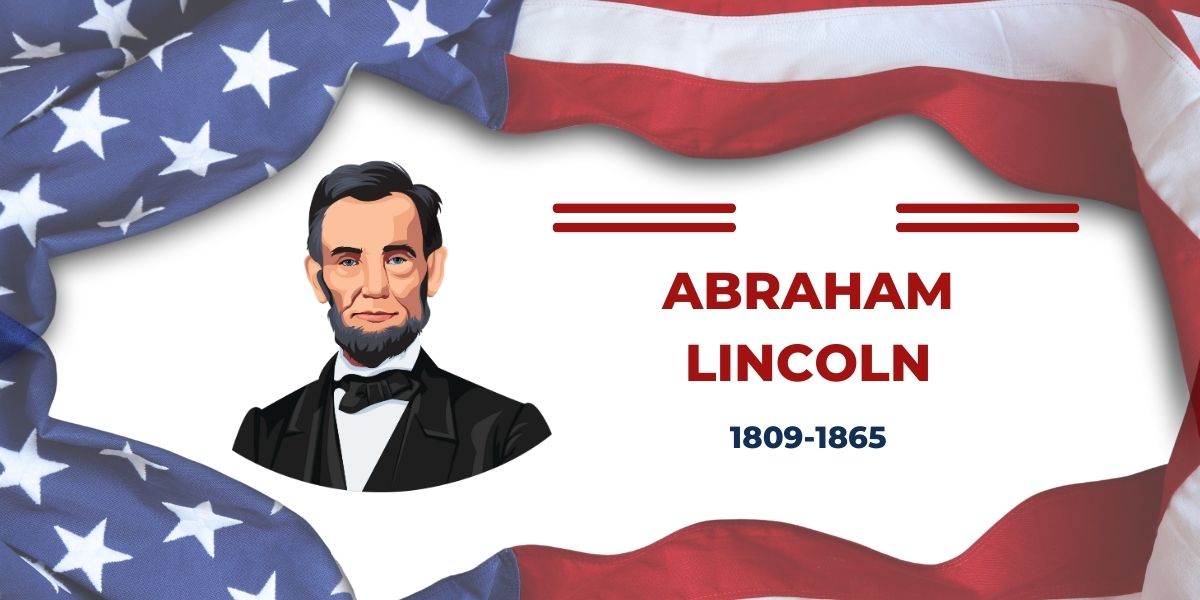Introduction
Abraham Lincoln, widely known as one of the greatest leaders in American history, continues to be esteemed and remembered for his remarkable contributions to the nation. Born on February 12, 1809, in a log cabin in Kentucky, he rose from ordinary beginnings to become the well-renowned President of the US. His presidency, which lasted from 1861 to 1865, marked as his intense commitment to preserving the Union and abolishing slavery. Today, his name stands for integrity, courage, and the pursuit of justice.
Political Career of Abraham
The political career of Abraham began in the early 19th century (specially the 1830s) when he elected to the Illinois General Assembly. Over the years, he steadily rose through the ranks, serving as a member of the U.S. House of Representatives and later as a prominent figure in the newly formed Republican Party. His opposition to the expansion of slavery in the Western territories gained him national recognition and set the stage for his historic presidential campaign.
16th US President
The journey of Abraham Lincoln to the presidency was a demonstration to his resilience and courage. Growing up in a family of modest means, he faced numerous hardships and setbacks. Despite his limited formal education, the 16th US President was a keen reader and self-taught scholar. His desire for knowledge and his strong work ethic pushed him to excel in various fields, including law and politics.
In 1860, When he emerged as the Republican nominee for the presidency, the nation was deeply divided. His election provoked a chain of events that finally led to the disruption of the American Civil War. Throughout the war, he faced immense challenges, both on the battlefield and in the political stage. His true leadership and faithful determination to preserve the Union became the base of his presidency.
Emancipation Proclamation
One of his most enduring achievement was issuing the Emancipation Proclamation on January 1, 1863. This historic document declared that all slaves in areas under Confederate control were to be set free, bringing about a fundamental change in the nature of the Civil War and paving the way for the eventual abolition of slavery. His commitment to justice and equality resonated deeply with the US people, making him an iconic figure in the fight against oppression.
Gettysburg Address
His legacy extends far beyond his leadership in United States of America. His steady dedication to the principles of equality and freedom continues to motivate people around the globe. Additionally, his speeches, such as the Gettysburg Address, considered masterpieces of confidence and serve as a reminder of the power of words to unite and heal a divided nation.
Abraham Lincoln’s Assasination
Shockingly, his life came to an end on April 15, 1865, when he was assassinated by John Wilkes Booth at Ford’s Theatre in Washington, D.C. So, his sudden death shook the nation, leaving a void that would never be completely filled. His assassination not only initiate this nation into its darkest hours but deprived it of a leader who inspired the generation with his visionary ideals.
In the decades following his death, he became an lasting symbol of hope and perseverance. Monuments and memorials dedicated to his memory can be found in numerous cities across the United States. The Lincoln Memorial, a majestic tribute in Washington, D.C., stands as a solemn witness to his remarkable impact on the nation.
Conclusion
In conclusion, the historical significance of Abraham Lincoln cannot be overstated. As a leader, he guided the United States through a fierce era, ensuring the principles of liberty and equality remained at the leading edge of the public awareness.

Very informative blogs. Looking for such content for a long time. You help me to figure it out easily. Thank You